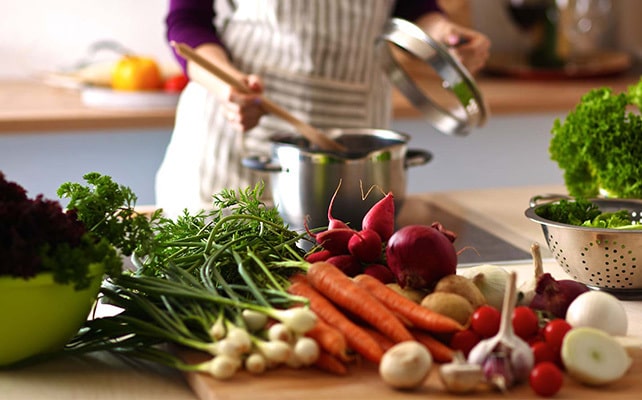Certain nutrients needed by your body for proper functioning and A1 health are found exclusively in vegetables. Some of them include fiber, vitamin C and all sorts of beneficial antioxidants. So it goes without saying that your everyday diet should include plenty of vegetables — unless your doctor instructs you to do otherwise for a medical reason.
Wondering what would happen if you suddenly stopped consuming vegetables? There is no need to turn yourself into a guinea pig just to find out because this article will do that for you!
You Will Gain Excess Pounds
Fiber is something that you won’t be able to find in any meat or animal-based product. Fiber carries out so many different roles, and one of them is to make your tummy feel full. A square meal that contains absolutely no fiber won’t make you feel satiated, so you end up consuming more food than necessary just to feel full. Certainly, it’s something that can make you gain extra pounds, bringing havoc to your figure as well as overall health.
You Will Wind Up Constipated
Thanks to fiber, the accumulation of toxins and waste products in your gut can be prevented. That’s because fiber helps promote regular bowel movement. If your diet is devoid of fiber-containing vegetables, it’s very much likely for you to end up constipated, most especially if you have a sedentary lifestyle and you’re not drinking enough water.
You Will Have Unsightly Skin
All sorts of skin problems will show up if your everyday diet does not include any vegetable in it, ranging from a dull complexion to pimples. Again, it has something to do with the fact that there’s no fiber to encourage the removal of poisonous substances in your gut. What’s more, vegetables are packed with antioxidants that combat free radicals, which are molecules that damage skin cells and cause all sorts of aging signs.
You Will Have an Unhealthy Gut
Special types of fiber found in certain vegetables help feed good bacteria in the gut, promoting their multiplication. If you don’t consume vegetables that pack the kind of fiber those beneficial microbes love, your gut will surely be in a wreck — and this is associated with various health implications! Some of the vegetables that good bacteria love include asparagus, leeks, Jerusalem artichokes, mushrooms, onions, garlic and fermented veggies.
You Will Feel Depressed and Anxious
Did you know that medical professionals say that the mood is connected to your gut? It’s for this reason why having an unhealthy gut can also leave you feeling down. It’s possible for you to suffer from anxiety, too. So in order to ward off depression as well as anxiety, remember to make vegetables an integral part of your everyday diet.
You Will Have Infections Often
Another thing that is linked to the gut is your immune system. Needless to say, having a gut in which bad bacteria outnumber the beneficial ones can weaken your immune system, which leaves your body unable to defend itself from infection- and disease-causing bacteria and viruses.
You Will be at High Risk of Cancer
Earlier, it was mentioned that antioxidants fight off free radicals, thus slowing the aging process of the skin. Are you aware that those damaging free radicals can also trigger cancer development when they damage the DNA? While there is no known surefire way to keep cancer from striking, a daily diet that contains good amounts of antioxidant-containing vegetables can help considerably lower your risk of having cancer, say medical experts.
You Will Also be at Risk of Heart Disease
It’s no secret that a diet that’s low in vegetables and high in saturated fat and cholesterol can clog your arteries and make your blood pressure rise. You certainly don’t want to have these things because they can increase your risk of having heart disease, as well as heart attack and stroke!
Sources: drfuhrman.com








